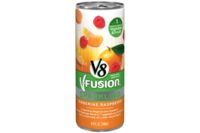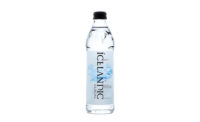PepsiCo outlines innovation strategy, Power of One advantages for 2010
PepsiCo, Purchase, N.Y., announced plans to overhaul its Gatorade line and increase innovation of natural zero-calorie sweeteners and their use across its beverage portfolio, said Massimo d’Amore, chief executive officer of Pepsi Beverages America, during PepsiCo’s Investor Meeting in New York today. The company also outlined its Power of One strategy following completion of the merger with its two largest bottlers.
Pepsi’s innovation strategy going forward is grounded in consumer research and dialogue, it said. Capitalizing on consumer research, the impending Gatorade relaunch aims to attract all types of athletes – from pro athletes to the casual gym visitors – through a new approach covering pre-workout, during workout and post-workout formulas, said Sarah Robb O’Hagan, chief marketing officer of Gatorade. The brand also plans to re-engage serious athletes with the introduction of G Series Pro, which will be available exclusively at GNC stores nationwide.
G Series Pro uses formulas that were only previously available to its professional athletes, O’Hagan said. Also formulated in three levels, G Series Pro features high-performance formulas and ingredients for this discerning consumer market and will launch in May. Pre-performance formulations will be branded as Gatorade Prime. Gatorade Perform is the brand for its mid-performance option and Gatorade Recover will feature a line of post-performance varieties.
The company also outlined its innovation strategies across its entire beverage portfolio. In its core carbonated soft drink market, the company outlined the success of its non-traditional marketing campaigns for the Pepsi Refresh Project and Mountain Dew Dewmocracy promotion. Following the success of its Throwback options sweetened with real sugar instead of high fructose corn syrup, Pepsi is working on creating a zero-calorie natural sweetener for CSD applications, d’Amore said.
Sobe Lifewater has seen success with zero-calorie formulations due to its use of PureVia, Pepsi’s natural zero-calorie Reb-A stevia extract sweetener, d'Amore said. Pepsi plans to expand the brand, beginning with next month’s launch of Sobe Natural Energy, a zero-calorie product sweetened with PureVia, he said. Energy drinks are another platform for expansion, d’Amore said. The company does not plan to acquire an energy drink maker, he said, but rather to grow its Amp brand and expand Pepsi’s distribution partnership with Rockstar Energy.
In the juice category, Pepsi announced innovation across each of its brand platforms. Tropicana remains its core brand in the category, and the company has seen success with its Tropicana Juicy Rewards program as well as its Trop50 line of PureVia sweetened lower-calorie juices, d’Amore said. In addition, its Dole brand of chilled juices has had success marketing toward Hispanic consumers, who were the target of its Dole Sensation line, d’Amore said. Pepsi also aims to continue to grow the premium segment that is anchored by Naked Juice.
The tea category also has shown growth for the company. A new Brisk lineup pre-priced at $0.99 has increased business in convenience and gas outlets, said Jill Beraud, chief marketing officer and president of joint ventures for PepsiCo Beverages America. In addition, the company’s partnerships with Unilever’s Lipton brand and Starbuck’s Tazo portfolio have performed well. The company also has innovation in the pipeline with Unilever to be able to harness health benefits specific to tea, Beraud said.
Eric Foss, chief executive officer of Pepsi Beverages Co., highlighted the advantages of the merger with its North American bottlers. One of this year’s priorities will be to leverage the system to gain distribution in more national and local foodservice accounts, Foss said. He emphasized the merger’s ability to increase Pepsi's execution, service, operation, revenue and margin excellence across its network. Independent bottlers also are not out of the equation, Foss said, and Pepsi Beverages Co. looks forward to working with this network on strategic alignments.
Looking for a reprint of this article?
From high-res PDFs to custom plaques, order your copy today!






